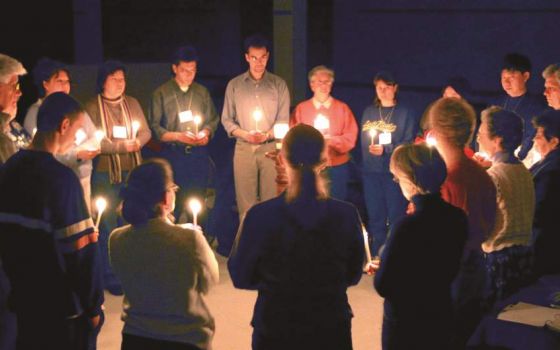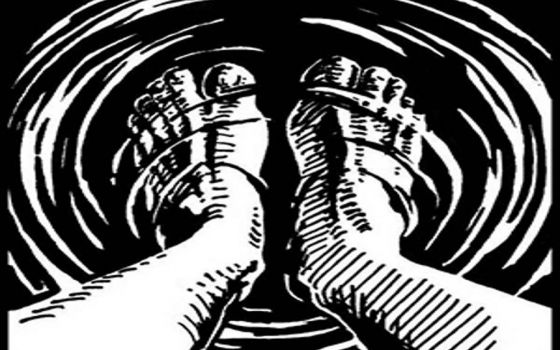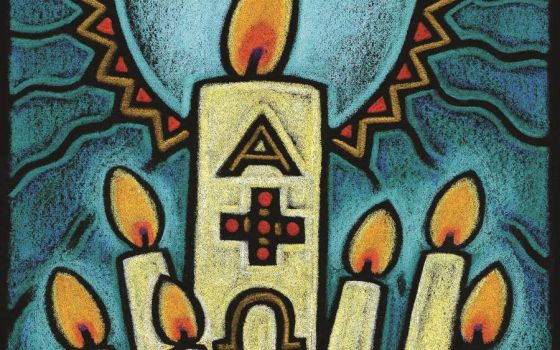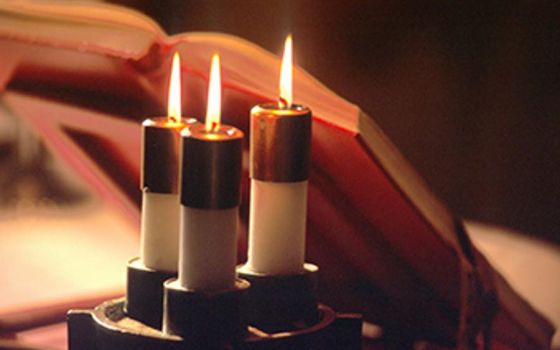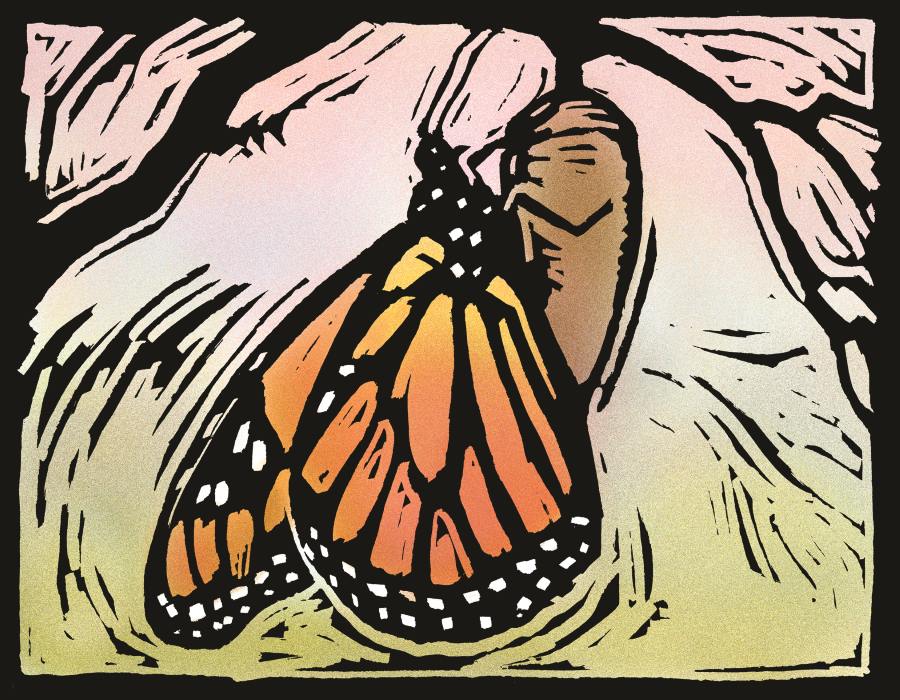
(Julie Lonneman)
It was an early November Sunday and the readings focused on the end time. The weather was unseasonably warm and the hillsides of southern Ohio blazed with autumn color in the bright sunshine. The homilist, a frail man in his early 80s, spoke of the coming end of the seasons — nature's and the church's. He noted the beauty around us and the promise of hope that relieved the severity of the biblical warnings. He spoke of giving thanks for all that has been and all that is yet to come so eloquently that I wondered if he had had a premonition of his own death.
I glory in the first signs of spring and new life (hooked on Easter!), but the arrival of fall is a season that brings a bit of depression to me. That lovely foliage signals nothing but the approach of death's darkness and the grave's chill.
I enjoy contemplating my own end with no more enthusiasm. I remember well the words of a dying dear friend. We had been talking about the friends and the happy times we had shared. At the end of our conversation, Kay spoke words that remain with me: "I'm not afraid and I'm not angry anymore. It's just that you know what you have here and it's hard to leave."
Yet that homily also brought someone else's words to mind. At the end of her Pulitzer Prize-winning book Pilgrim at Tinker Creek, my favorite author, Annie Dillard, says that dying people must be saying "Thank you" like departing guests at the door. (Kay certainly was.) "Falling from airplanes the people are crying, thank you, thank you, all down the air."
However they might prefer to turn their backs to the reality of their own eventual demise, the people to whom we minister are approaching the end of their lives. (Jesus wasn't exactly thrilled about facing death either. There's a wonderful line in the Gethsemane scene in the '60s rock musical "Jesus Christ Superstar": "You're awfully good on when and how/ but not so hot on why.")
The coming Holy Week celebration of Jesus' death and resurrection can focus our prayer and conversation this month. Talk about Jesus' reluctance to face the reality of his coming death and about how terribly human that was. He must have grieved over his broken dreams about bringing the kingdom into reality. Looking down from the cross and seeing only a few loving faces in the crowd added the pain of loneliness to his agony. Only his trust in his Father sustained him as he fell into those loving arms.
Remember too the joy Easter morning held for both Jesus and his friends. Reflect on the hope that Jesus' death and resurrection give to us that one day death, the last enemy, will be defeated (see 1 Cor 15:24-26).
Encourage the people you visit to look back over the years and try to name the people and events for which they are most grateful. Work a word of thanks for these into your prayer — including the reasons for gratitude you find in your own life.
I'd like to think I will die, as Annie Dillard wrote, in a spirit of thanksgiving for all that has been and all that is yet to be — even though I am sure that what my dying friend said is God's own truth: It is the very things for which we are most thankful that make it hard to go.
Advertisement
Yet among the people who have gone before us are many we count among our blessings. When studies of "near-death experiences" first appeared, survivors told of traveling through a long, dark tunnel toward the light. Along the way, they heard encouraging words from voices that death had silenced perhaps many years ago.
I wondered whose voices I might expect to hear. Departed family members came first to mind, of course, and dear friends like Kay. Then I thought of other people I loved and was profoundly shaped by but never met face to face. In college I discovered a man I knew only through his poetry. Years later I saw this old friend, T.S. Eliot, on television, reading his poems in his dry, bank-clerk voice. Yes, I would recognize that voice, I thought. John Howard Griffin, author of Black Like Me, was another. When I heard him once on National Public Radio, he spoke so compassionately even of racists that I thought I could be listening to Jesus. And then there was John, my favorite evangelist. I couldn't imagine how I would recognize his voice until a thought struck me: John will know my voice!
Yes, there is much to be thankful for: what has been and what will be.
Editor's note: This reflection was originally published in the April 2006 issue of Celebration. Sign up to receive daily Lenten reflections.




